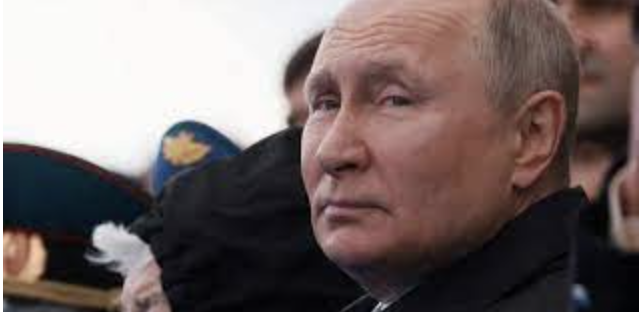President Vladimir Putin secured a staggering 88% victory in Russia’s presidential election, as indicated by exit polls and initial results, solidifying his dominance in the country.
Despite this apparent triumph, thousands of dissenters staged a symbolic protest at polling stations around noon.
This overwhelming victory positions Putin to potentially surpass Josef Stalin as Russia’s longest-serving leader in over two centuries, assuming a new six-year term. With 87.8% of the vote, Putin achieved the highest electoral margin in Russia’s post-Soviet era, according to an exit poll by FOM.
The Russian Public Opinion Research Centre (VCIOM) similarly placed Putin at 87%, with official results aligning closely with these projections.
The election occurred against the backdrop of heightened tensions, only two years after Putin’s order for the invasion of Ukraine, leading to Europe’s deadliest conflict since World War II, which Putin characterizes as a “special military operation.” Throughout the election period, Ukraine launched attacks on Russian oil refineries, shelled Russian territories, and attempted incursions with proxy forces, actions that Putin vowed to retaliate against.
While Putin’s victory was all but assured given his control over the state apparatus and the absence of credible opposition, the former KGB operative aimed to demonstrate widespread support among Russians. Voter turnout across the nation surpassed 2018 levels, reaching over 67.5% hours before polls closed at 1800 GMT.
Supporters of Putin’s prominent adversary, Alexei Navalny, who tragically passed away in a Siberian prison last month, urged Russians to participate in a “Noon against Putin” demonstration, denouncing him as a corrupt autocrat. Despite tight security involving tens of thousands of law enforcement personnel, there was no independent assessment of the opposition turnout.
Reporters from Reuters observed a surge in voter numbers, particularly among young people, around noon at polling stations in Moscow, St. Petersburg, and Yekaterinburg, with queues stretching hundreds, even thousands, of individuals long. Some voters indicated their protest intentions, although distinguishing them from ordinary voters proved challenging. As noon approached across Asia and Europe, sizable crowds gathered at Russian diplomatic missions’ polling stations. At the Russian embassy in Berlin, Navalny’s widow, Yulia, received cheers and chants of “Yulia, Yulia,” while exiled supporters streamed protests on YouTube from both within Russia and abroad.
“We have demonstrated to Russia and the entire world that Putin does not represent Russia, that he has seized power,” remarked Ruslan Shaveddinov of Navalny’s Anti-Corruption Foundation. “Our triumph lies in overcoming fear and isolation—many realized they were not alone.”
Leonid Volkov, a Navalny aide in exile who recently survived an assault in Vilnius, estimated that hundreds of thousands turned out at polling stations in major cities despite risks of arrest. However, OVD-Info reported at least 74 arrests nationwide on Sunday, underscoring the authorities’ crackdown on dissent. While sporadic protests occurred over the preceding days, including incidents of vandalism against polling booths and ballot boxes, Navalny’s demise has left a significant void within the opposition. Other key figures find themselves either abroad, incarcerated, or deceased. Western leaders, particularly in the United States, have consistently characterized Putin as an autocrat and aggressor.
President Joe Biden’s recent description of him as a “crazy SOB” underscores the deep-seated animosity. The International Criminal Court’s indictment of Putin for alleged war crimes, which the Kremlin denies, further exacerbates tensions. Putin frames the conflict with Ukraine as a historic struggle against a declining West that humiliated Russia post-Cold War by encroaching on its sphere of influence. According to Nikolas Gvosdev of the Foreign Policy Research Institute, Putin’s primary objective is to institutionalize his worldview to ensure continuity beyond his tenure.
The timing of Russia’s election coincides with a pivotal moment in the Ukraine conflict, which Western intelligence agencies view as a broader struggle between democratic and autocratic forces, echoing Biden’s characterization of a 21st-century ideological battle. The question of support for Ukraine becomes entangled in U.S. domestic politics, particularly with the upcoming presidential election. Concerns persist that without increased assistance, Russia may escalate its aggression, potentially emboldening China, as warned by CIA Director William Burns. Putin contends that the West, in collaboration with Ukrainian forces, is waging a hybrid war against Russia, aiming to disrupt the electoral process. Voting also took place in Crimea and other disputed Ukrainian territories, which Moscow annexed in 2014, a move vehemently opposed by Kyiv.
Source:{Matzav.com}
